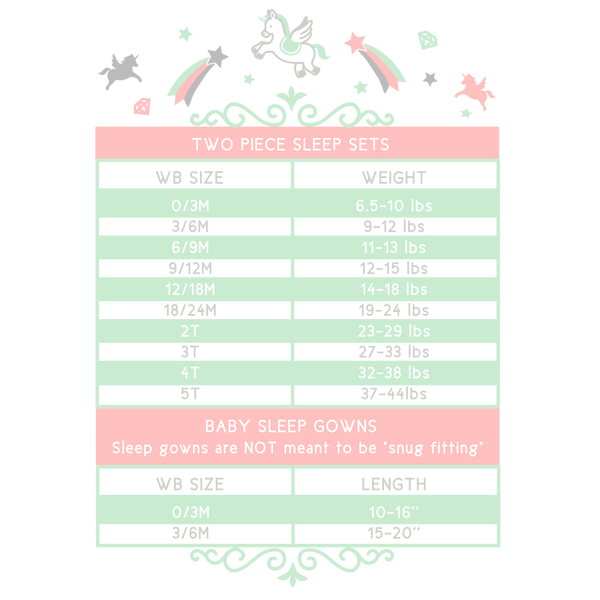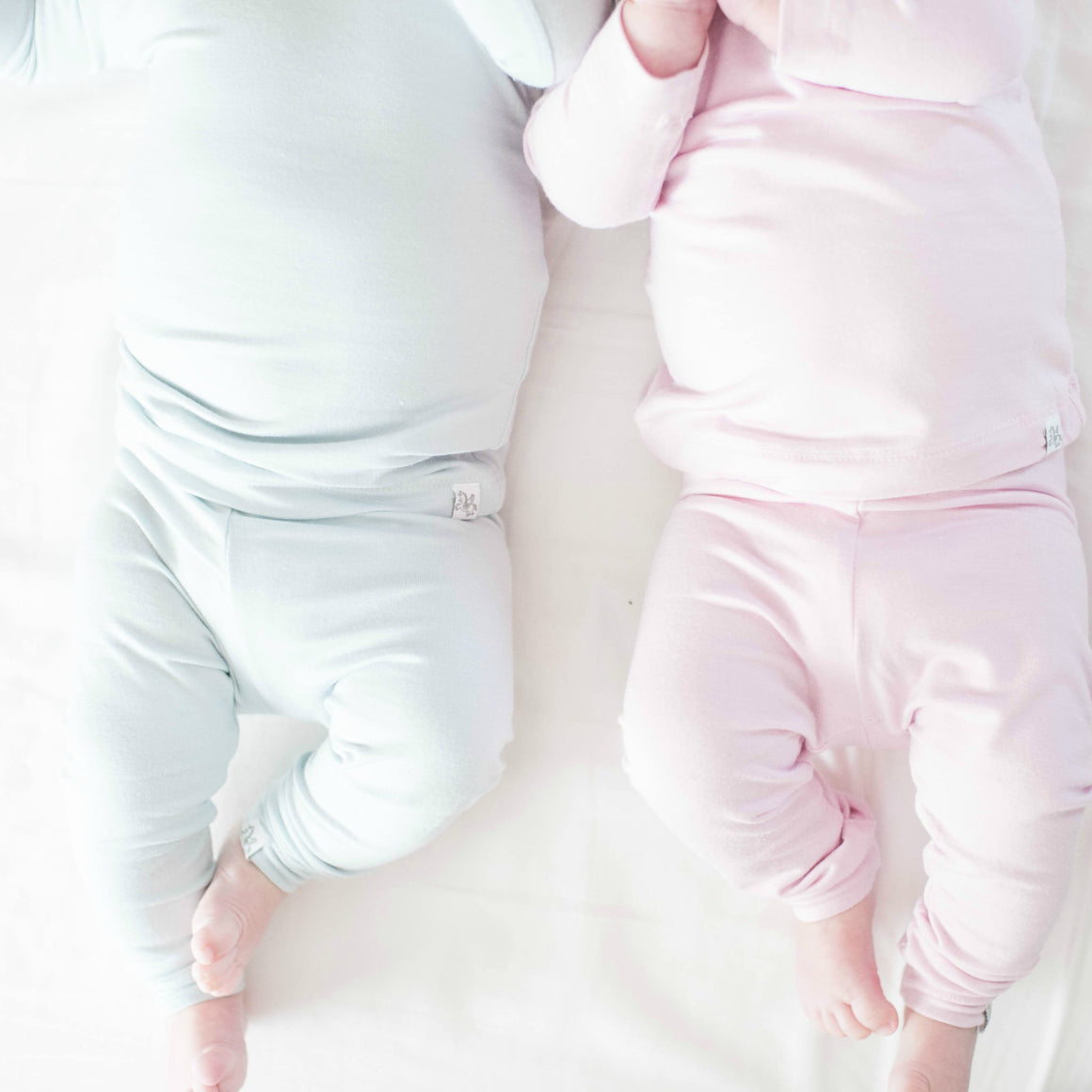Melatonin for Babies and Kids: Is It Safe?
We all know what it’s like to have a baby who won’t sleep or a child who seems to just love burnin’ the midnight oil. When you’re an overly exhausted parent, you’ll do pretty much anything for those elusive, much-needed ZZZs so it’s easy to understand how tired moms and dads can quickly resort to bad sleep habits when their little one is resisting shut eye—seriously, we’re just trying to get through this alive, amiright?! Reaching for a lifeline like melatonin doesn’t seem too outlandish—after all, it’s natural! Maybe using it for a few nights will be the key to getting your little one’s sleep back on track!
According to The Nutrition Business Journal, sales of the supplement melatonin have increased more than 500% since 2003—an astonishing $62 million to a reported $378 million in 2014 😮. While this figure does not break it down by adult or child usage, there’s no doubt that the use of melatonin for kids is on the rise. Google “Melatonin gummies for kids” and you’ll find no shortage of fruity flavors and chewable tablets marketed for kids.
So if everyone’s doing it, it must be safe, right? Eh, perhaps. Let’s dive in and find out it melatonin for babies and children is actually a good idea.
Article Contents:
- What is Melatonin?
- Melatonin and The Baby Sleep Cycle
- Is Melatonin for Babies and Kids Safe?
- Encouraging Better Sleep
- Summary
What is Melatonin?
Melatonin is a natural hormone produced in the pineal gland of your brain, a gland that is strongly influenced by the body’s internal clock. Melatonin is associated with the onset of sleep in humans and many animals and it’s released in sync with your body’s circadian rhythm—the “body clock” that tells our bodies when to sleep, rise, and eat. In short, the circadian rhythm is why you generally feel sleepy at the same time each day. So it makes sense, then, that the highest levels of melatonin—a sleep inducing hormone—are released at night.

Melatonin and the Baby Sleep Cycle
Although natural Melatonin helps regulate an adult’s 24 hour sleep/wake cycle, it’s not the case for infants under three months old. These little guys are not quite ready to develop this natural sleep hormone. If you’ve considered using melatonin for infants, it’s important to first develop an understanding of a baby’s sleep cycle in order to set realistic expectations of sleep. If your baby is fighting sleep or waking frequently at night, the issue may be that she’s just not developmentally ready for lengthier sleep. Here’s what I mean...
You may have noticed that babies sleep and eat way more frequently than children and adults. What you may not have realized is that a baby’s circadian rhythm does not develop until around three months of age. Before three months, a baby’s internal clock is not synchronized with the 24 hour day and since a newborn’s sleep cycle is shorter than 24 hours, your baby could have very different levels of tiredness at the same time on two given days.

Prior to three months, it’s primarily a baby’s hunger—or lack of hunger—that determines when she sleeps or wakes. Think about it: a baby’s belly is tiny, so of course she will need to wake up more frequently to fill it. Implementing strict sleep regimens or attempting sleep training won’t work just yet because baby is simply not developmentally ready for it.
As babies spend more time exposed to the natural light of day and the dark of night, their sleeping and eating cycles get longer and eventually fall into a more regulated 24 hour sleep pattern. Around this time, babies will also begin to start making their own melatonin. Although this generally occurs around the 3-4 month milestone, some babies who haven’t been exposed to any artificial light (more on light and sleep in a sec) have been known to develop circadian rhythms as early as 2 months!
There are many reasons a baby might have trouble sleeping throughout the first year—overtiredness, separation anxiety, sleep regression, hunger, or day/night confusion to name a few—so melatonin for babies may not be the answer. It’s a good idea to consider the reason your baby is having sleep trouble before considering melatonin for baby sleep. Once you can pinpoint the cause, you’ll be much better equipped to find a solution.
Is Melatonin for Babies and Kids Safe?
In 2012, about 419,000 American children used Melatonin—332,000 more than in 2007. A 2015 survey to measure the prevalence of melatonin use among Norwegian children between 4 and 17 showed that melatonin use has increased annually between 2004 and 2012, with some children as young as four years old taking it for several years. So lots of parents are doing it, but is melatonin for babies and young children actually safe?!
Here’s the thing: we’re just not quite sure about the safety of melatonin for baby sleep and sleep in young children. Although melatonin has been proven safe for short-term use in adults—and it’s widely used in various forms—there is simply not enough evidence that shows that melatonin is safe for babies or kids. In fact, even though the use of melatonin for kiddos is on the rise, it’s not registered for use in children anywhere in the world! Why? For one, it has not undergone the formal safety testing for a new drug.
Perhaps the biggest concern over the use of melatonin for kids is the effect on sexual development and reproduction. According to a research article in the February 2015 issue of the Journal of Paediatrics and Child Health, melatonin administered to sheep caused an increased ovulation rate.
The hormone also led to a delayed onset of puberty in several rodent and primate experiments. According to Ingeborg Hartz, a researcher at Hedmark University College and the Norwegian Institute of Public Health (FHI) “The question is whether melatonin may affect puberty and reproduction in humans. This is especially important for children treated with the hormone over extended periods. To date, no clear effects on human puberty through melatonin use have been found, but there is the possibility of a link between reproductive issues and long-term use of melatonin.

A Dutch study followed almost 70 children who had been on melatonin for just over 3 years and did not find that long-term treatment caused any disturbances in the onset of puberty. However, the study has been criticized for being too small and ending when only a third of the children had reached 13 years of age.
According to Dr. Judith Owens, director of sleep medicine at Boston Children's Hospital "Melatonin actually suppresses some hormones that regulate puberty. So, the concern is that chronic use of melatonin could alter normal pubertal development.” Although there’s no published evidence to support this theory in humans, “it's more of a theoretical concern at this point, but I think that's [what] tends to be most worrisome."
That being said, there are some instances where melatonin may be helpful. An estimated 25% of children have sleep-onset delay, which means that it takes longer for them to fall asleep than is considered normal. Research shows that melatonin may be useful in children who suffer from ADHD, insomnia, autism and other conditions that may make it difficult to relax and fall asleep, but it’s important to couple it with behavioral interventions and healthy sleep habits.
If you do choose to use melatonin, you should always consult your child's doctor before administering it, especially in the long-term. Even over-the-counter medications, supplements and vitamins can interact with each other, sometimes nullifying the effectiveness or increasing the risk of side effects, so it’s important to always work together with your child’s physician to determine the best course of treatment.
Encouraging Better Sleep
According to Dr. Craig Canapari, director of the Pediatric Sleep Center at Yale-New Haven Children's Hospital in Connecticut "The most effective interventions for insomnia are often behavioral.” There are lots of other ways you can encourage better sleep without resorting to the use of melatonin, supplements, or drugs.
If you’re a parent to a baby, try these tips:
Identify the culprit. There are common reasons your baby will awake at night and pinpointing the reason will help you battle it. For more, visit 5 Common Reasons Babies Fight Sleep.
Create a bedtime routine. Create a consistent bedtime routine that will allow your little one to unwind and prepare for sleep. This may include a bath, followed by a book and some cuddles. Find what works for you and stick with it. It’s also a good idea to maintain the same bedtime and wake up time.
Keep baby comfy. Opt for ultra-soft PJs that are lightweight and air-permeable so the skin can breathe. Babies have very delicate skin so comfy, non-irritating PJs are key to a good night’s rest!
Be aware of the “sleep window”. The sleep window is that brief time when your little one is drowsy enough to fall asleep fairly quickly, but not so tired that she’s crying. This is key to preventing an overtired or undertired baby, one of the most common causes of baby sleep issues. Learn more about the sleep window here.
Create a sleep friendly environment. Incorporate soothing motions and sounds when putting your baby down. Try playing soft music throughout the night which may make her more comfortable when she wakes and avoid distracting toys and mobiles during sleep.
Use a gown, swaddle, or both. Snugly wrapping up your baby in a sleep gown or swaddle blanket will provide a sense of warmth and security by simulating a womb-like feeling. For a double whammy, swaddle over our sleep gown for an extra cozy environment.
 Make the crib a happy oasis. It’s important that your little one views the crib as a safe, happy place. The more positive experiences in the nursery, the better! Play with your baby in the crib while she’s happy and take her out of the crib while she’s still happy. This will build positive associations with the space.
Make the crib a happy oasis. It’s important that your little one views the crib as a safe, happy place. The more positive experiences in the nursery, the better! Play with your baby in the crib while she’s happy and take her out of the crib while she’s still happy. This will build positive associations with the space.
Keep it dark. Use the least amount of light—like a closet light or night light—so you can see for night feedings and diaper changes.
Keep mid-night interactions quick and all business. Don’t make a big fuss when your little one gets up during the night. It’s okay to soothe her, but do only what’s necessary to get her back to a relaxed state/sleep in her own crib. If you can, try to avoid smiling and playing. By keeping these interactions all business, you’re teaching your baby that the fun , playful interactions are for daytime, not nighttime.
Encourage exploration during the day. There’s so much to do and explore now that your little one is more mobile! Provide LOTS of time and encouragement during the day for your baby to practice new skills.
If you’re a parent to a toddler or young child, try these tips:
Avoid TV and electronics. It’s best to shut down the TV and electronics at least an hour before bed. Don’t allow TV or electronics in the bedroom since artificial light can affect sleep onset.
Make it cool. Maintain a cool room temperature that will encourage more sound sleep. In general, experts recommend keeping the temperature between 68 and 72 degrees for the best sleep.
Keep cozy. It’s hard to sleep when you’re not comfortable! Opt for super soft sleepwear that will keep your little one cool and comfortable. Our two piece sleep sets are perfect for winter or summer and they’re free of irritating tags and itchy seams.
Try sleep meditation. It might sound silly but meditation has been proven to have positive effects even on children! There are lots of great resources—videos, guided scripts, and apps—that can help your little one settle down for a peaceful night’s rest. To learn more about sleep meditation, check out Kids’ Sleep Meditation.
Make the room a happy oasis. Just like with babies, the more positive associations with the bed and bedroom, the better. Avoid sending your child to the bedroom as a form of behavioral punishment.
Set limits. Kids are smart and they happen to be pretty good little manipulators! Don’t be surprised if your child employs all kinds of stall tactics before bed—it’s normal! Perhaps you agree to singing one song together followed by a book then bed. Whatever you choose, stick to it. If you give in once—please, mom, just one more book— your kiddo will know that your limits can be pushed.
Dr. Owens stresses that it's important for parents to first seek to understand and address the root of the sleep problems rather than immediately reaching for a quick fix like melatonin for babies. Running to the pharmacy to purchase over-the-counter melatonin may send the wrong message to children—"That when you can't sleep you pop a pill. And I think that's a very dangerous message to send."
Summary
In short, we’re not quite sure if melatonin for babies and kids is safe so it’s probably best to stay away from using it, unless absolutely necessary and recommended by your child’s physician. Although it may be safe, the FDA has not approved it nor evaluated the use of it in children or babies. There are some concerns over the effects of melatonin on children’s sexual and reproductive health as links to long-term use have shown a correlation between the two in rodent and primate experiments. Although there is not enough evidence to prove either way—and the studies that have been done focus on long-term use rather than occasional use—many experts are reluctant to recommend melatonin for children unless absolutely necessary. It should also be noted that babies don’t start developing a circadian rhythm— and therefore, the ability to create their own natural melatonin— until around three months. That’s worth thinking about if you’re considering melatonin for sleep for babies. Instead, it’s recommended that you work to build and enforce healthy sleep habits. There are lots of other ways to encourage better sleep, and in many cases, the most effective interventions for insomnia are behavioral.
The lack of research on Melatonin’s long-term effects coupled with the lack of federal oversight should make parents cautious. Dr. Stan Spinner, chief medical officer of Texas Children's Pediatrics, says "For a healthy child, who may just not be a good sleeper, I tell [parents] that I would not necessarily give it to my child.” But if you’re a parent that has all the facts, the decision is ultimately up to you, just be sure to work together with your physician.
Wishing you love, peace, and sleep! 😴


Sources:
https://www.healthline.com/health/melatonin-for-babies
https://www.healthline.com/nutrition/melatonin-for-kids
https://www.webmd.com/parenting/baby/features/baby-snooze-clues
https://www.nodtosleep.com/single-post/2018/04/30/Lights-Melatonin-Babies
https://www.healthline.com/nutrition/melatonin-side-effects#section3
https://nccih.nih.gov/research/statistics/NHIS/2012/natural-products/melatonin#child-data
http://sciencenordic.com/children-taking-unapproved-sleep-meds-several-years
Leave a comment
Comments will be approved before showing up.












About The Author
Tara Saltzburg founded Westyn Baby when her son was an infant battling severe eczema. She was always on the lookout for products that would minimize the irritation and ease his discomfort, but safe, non-irritating pajamas proved difficult to find. Tara started Westyn Baby in 2016 with a mission to create better, safer sleepwear for kids - sleepwear that's exceptionally soft, flame-retardant free, sensitivity-friendly, and durable. Read more about WB sleepwear.
Tara was born and raised at the NJ shore and attended Penn State University, where she played soccer and discovered her love of mountain life. She is a mom of one boy and hopes to eventually have enough kids to form some sort of athletic team. She and her family currently reside in Central Pennsylvania and spend the summers in Stone Harbor, NJ.